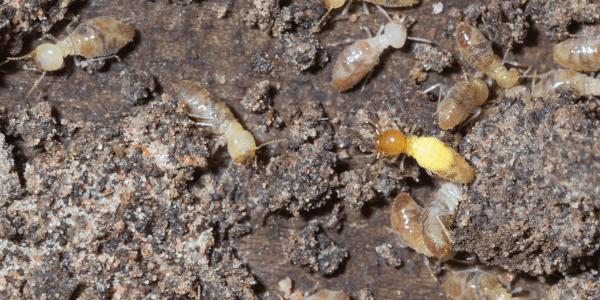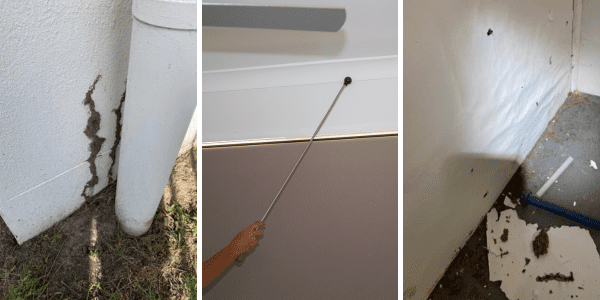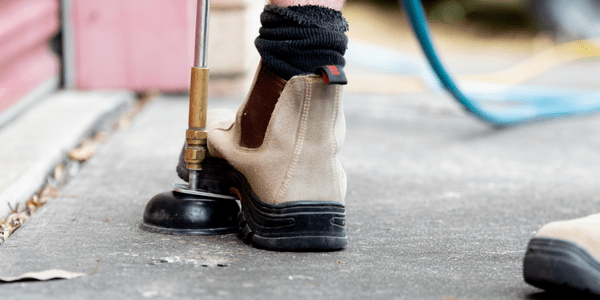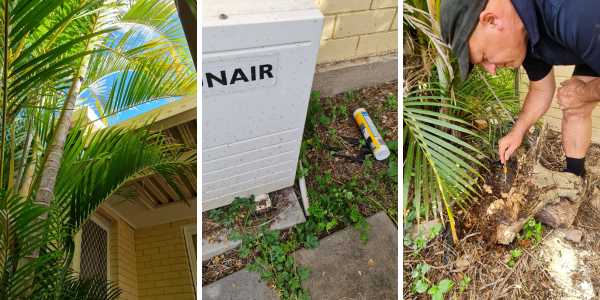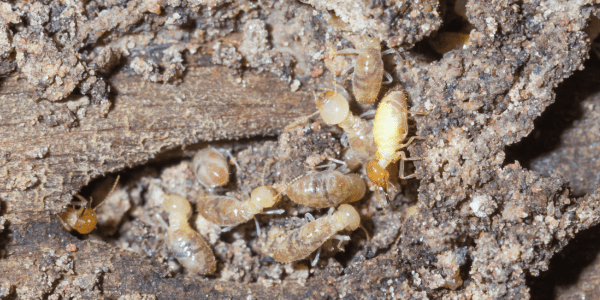How to Get Rid of Termites Effectively
Get Rid of Termites, For Good!
As beautiful as the city of Brisbane is, homeowners here have a daunting challenge - battling against termites. These tiny pests can cause significant damage to properties if left uncontrolled.
In this blog post, we will be addressing various ways to effectively rid your home of termites. We'll help you understand the types of termite control, and discuss the role of prevention and cost in termite management.
How to Identify a Termite Infestation in Your Home
Keeping an eye out for the early signs of a termite invasion in your Brisbane home is paramount. If left undetected, termites can cause a significant amount of damage to your home. In extreme cases, they can even compromise the structural integrity of your home. Termites often remain undetected because homeowners don't know what signs to look for or forget to get annual timber pest inspections.
Whilst termites are elusive creatures that can be hard to spot, they do leave behind some telltale signs of their presence. These signs include:
- Mud tubes - Subterranean termites build mud tubes to travel between their colony and their food source, which can be visible on walls or foundation.
- Hollow-sounding wood - If you tap on a piece of wood and it sounds hollow, it could be a sign that termites have been eating away at the inside of it.
- Crumbling or damaged wood - Termites can cause wood to become weak and brittle, which can lead to it breaking or crumbling easily.
- Swollen floors or ceilings - If you notice a floor or ceiling that appears to be swollen or bulging, contact us as soon as possible. Significant damage has likely been caused by this stage.
Being aware of these signs can aid in the early detection of termite infestation, enabling you to take action before they devour your property. Always remember, the sooner you identify the presence of termites, the easier and less costly it will be to eradicate them and save your home from further destruction.
Types of Termite Control
Regardless of whether you've found termites or are simply interested in the types of termite control available, it's important to know your options. For Brisbane homeowners, the three most effective termite control options are:
1. Spot treatment to kill any live termites
A spot treatment involves spraying a slow-acting chemical onto the termites which they then take back to the nest, killing off the whole colony. This treatment can only be conducted if there are live termites.
2. Installation of a chemical termite barrier (long-term preventative)
Similar to spot treatment, a chemical termite barrier also uses a slow-acting chemical. However, this treatment involves installing the chemical around the entire perimeter of your home to protect against subterranean termites for up to 8 years. Whilst it’s not 100% termite-proof, it is currently the best protection available on the Australian market.
3. Installation of termite bait stations
This method is generally used when a house is not suited to a chemical termite barrier. Instead, bait stations are filled with treated timber and installed at intervals around the perimeter of the property.
No matter what kind of control method you choose, it's essential to have regular termite inspections to ensure the treatments remain effective and that no new termite colonies have moved into the neighborhood. With the right control methods and a vigilant eye, you can safeguard your home against future infestations.
Understanding the Role of Prevention in Termite Control
Just as the old saying goes, "An ounce of prevention is worth a pound of cure," so too does it ring true when it comes to keeping termites at bay. It's not enough to merely treat a termite infestation, you have to take steps to ensure they don't make a return visit. Thankfully, there are a few things you can do to prevent termites including:
1. Clean your surroundings
Termites love wood, and leaving piles of firewood, old furniture, or wooden debris around your home is like rolling out the red carpet for these pests. Regularly clearing these potential termite feasts from your property can significantly cut down on the risk of an infestation.
2. Maintain good ventilation in your home
Another preventive step is to maintain good ventilation in your house, particularly in basements and crawl spaces. Moisture is the main attraction for termites, and a well-ventilated home can help deter these wood-guzzling pests.
3. Ensure that water drains away from your home
Termites are attracted to moisture, so fixing any leaks or plumbing issues and cleaning gutter and downpipes is important. Additionally, make sure air conditioners, downpipes and hot water tanks are properly diverted.
4. Trim back any overhanging branches or plants that overhang the roof
Termites are tricky creatures and can find additional ways into your home including through your roof via overhanging tree branches.
5. Get regular timber pest inspections
Regular, professional termite inspections are also a cornerstone of effective termite prevention. These inspections are thorough, extending beyond just your house to include your garden, fences, and any outbuildings. Our inspectors don't just focus on visible signs of termites, they also look for signs of moisture or fungal decay, which could invite future termite invasions.
Remember, prevention isn't a one-and-done solution. It's a constant, ongoing process, requiring regular attention and action. But with these steps, you'll be well equipped to prevent an invasion before it begins, saving you not only the headache of dealing with termites but potentially saving your home from serious damage.
The cost of termite control and management
Termite control and management, like any home maintenance task, come with associated costs. However, it's crucial to think of these expenses as a protective investment for your home. The actual cost of termite treatments can vary based on several factors.
The severity of the infestation is a primary determinant. As dealing with a small-scale termite problem is significantly less costly than tackling a large, entrenched colony. The type of termite treatment also influences the cost. Whether it's chemical barriers or baiting systems, each has its own price range. The size and structural features of your home can affect the cost as well. Larger properties or houses with crawl spaces, for example, may require more extensive treatment, thereby increasing the overall cost.
While these expenses might seem steep initially, it's important to weigh them against the longevity of the treatment and the potential damage and costly repairs if termite infestations are left untreated.
At Dedant Building and Pest Inspections, our termite pest technicians can provide you with cost estimates tailored to your specific circumstances, helping you make informed decisions that safeguard your home and respect your budget.
What To Do If You Have Found Termites
If you've discovered termites in your home, keep calm. You’ve got this. Secondly, don’t take any actions that might disturb them. Termites are tricky little critters who will abandon their current nest and hide in another part of your house when threatened. This migration can make treating the infestation a lot harder, as it spreads the problem further afield in your home. Finally, call a licensed termite technician and schedule a termite treatment. They'll be able to effectively treat the termites ensuring your home is rid of termites as quickly as possible.
Finding termites in your home can be unsettling, but you're not helpless. By acting promptly and wisely, and by drawing on the advice and support of professionals, you'll be well on your way to reclaiming your home from these unwelcome invaders.
Book your Annual Timber Pest Inpsection today!
At Dedant, all our inspectors are licensed and highly experienced at conducting timber pest inspections, termite treatments and installing chemical termite barriers.
We have been servicing Brisbane, Redland Bay, Moreton Bay, Gold Coast, the Scenic Rim, Sunshine Coast, Ipswich and Logan since 2009.
If you have any questions or would like to book, contact us on 07 3807 0122 or via our website.

